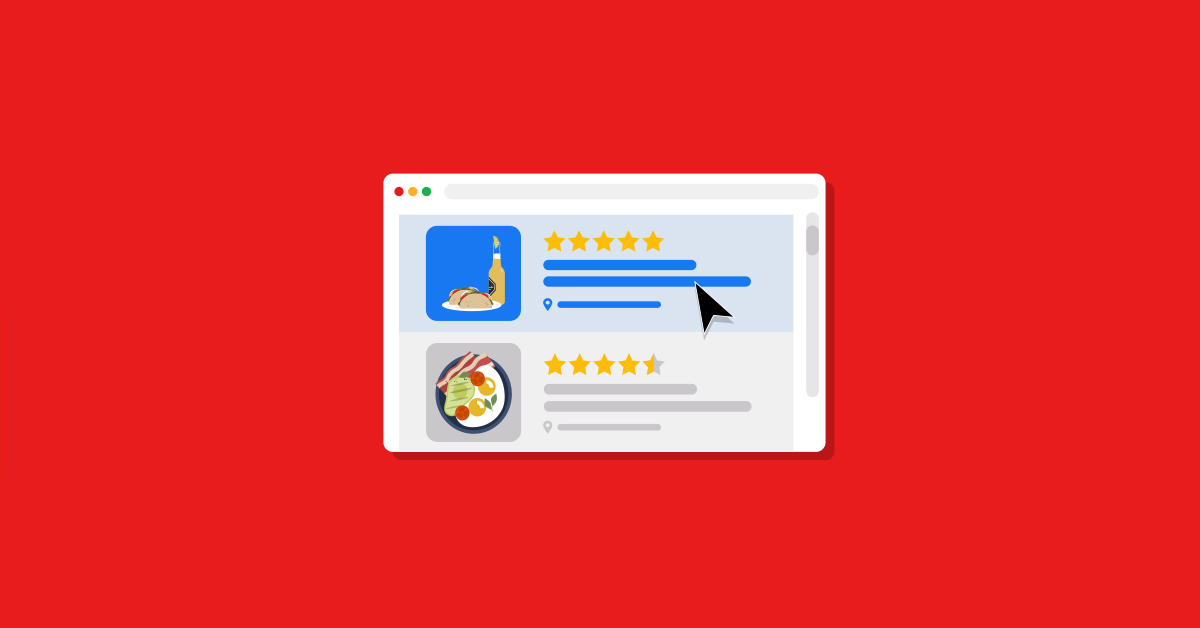
Restaurant insurance; the necessary evil of the hospitality world.
On the one hand, restaurant insurance is complicated, time-consuming and costly. On the other, it can save your business from disaster.
From protecting your restaurant against damage and theft to safeguarding you if a customer becomes ill or injured, restaurant insurance is a surefire way to protect your business from a range of potential issues.
However, understanding what insurance policies you’ll need for your restaurant and which ones you’re legally obligated to take out can be confusing. To help make things a little clearer, we’ve outlined the seven must-have restaurant insurance policies to protect your business.
Let’s dive in.
- Why do you need restaurant insurance?
- 7 must-have types of restaurant insurance
- Restaurant insurance options
- What information do you need to buy restaurant insurance?
Opening a restaurant?
Download our free costing template that covers all essential costs, from securing your location to opening your doors.
Why do you need restaurant insurance?
Restaurant insurance is essential for protecting against the various risks that restaurants face and ensures you can continue operating even in the face of unexpected events or accidents.
There’s a common misconception that restaurant insurance simply protects your business against things like damage, fire or theft. In actuality, a whole host of policies aim to cover every aspect of your business, from safeguarding your customers and employees to providing a safety net if you have to temporarily cease operations.
In Australia, businesses are also legally required to hold certain types of insurance. For example, if you have employees other than yourself, you must take out workers’ compensation insurance.
There are numerous other reasons why restaurants should take out insurance, including:
Protecting against liability
Restaurants can face liability claims from customers for several reasons, such as becoming sick from food poisoning or accidentally slipping and injuring themselves in your venue. Insurance can help protect against these types of claims and cover their associated costs.
Property damage
Restaurants can experience property damage from various events, including fires, floods, and vandalism. An insurance policy can help cover the costs of repairs or replacements associated with any property damage.
Business interruption
Restaurants can also experience business interruptions due to fires or natural disasters, which can force a temporary closure. In this instance, restaurant insurance can help cover lost income during these periods.
Employee injuries
Restaurants, particularly restaurant kitchens, can be hazardous work environments, and employees may suffer injuries, like burns, while working. This can result in workers’ compensation claims, and insurance can help cover the associated costs.

7 must-have types of restaurant insurance
Every restaurant is different, and there are numerous restaurant insurance policies available that can cover everything from workplace accidents to theft. While every restaurant will need a different combination of insurance policies, we’ve listed the seven most common policies for restaurants in Australia.
1. Public liability insurance
Public liability insurance covers your business if someone is injured or their property is damaged while in your venue. It can provide peace of mind and financial protection against unexpected events that could result in costly legal claims.
While public liability insurance isn’t compulsory for restaurants in Australia, it is strongly recommended for businesses that deal directly with the general public.
What it covers
Public liability insurance typically covers the costs of legal fees, compensation payouts, and other expenses that may arise if someone is injured or their property is damaged in your restaurant.
For example, if a customer slips and falls in your restaurant and suffers an injury, your public liability insurance would cover any health care and legal costs associated with the customer’s claim.
2. Workers’ compensation insurance
Workers’ compensation insurance financially protects employers by providing benefits to employees who suffer work-related injuries or illnesses.
This type of insurance provides workers with financial support while they are unable to work due to their injury or illness and helps cover the costs associated with their recovery.
In Australia, workers’ compensation insurance is mandatory for most employers.
Employers are required to purchase workers’ compensation insurance for their employees, and the insurance cost is generally based on the industry, location, and size of the business. The system is designed to provide support and protection to both workers and employers in the event of work-related injuries or illnesses.
What it covers
Workers’ compensation insurance typically covers medical expenses, lost income, and rehabilitation costs for injured workers. It can also provide lump-sum payments for permanent impairments or death benefits to workers’ families.
3. Business interruption insurance
Business interruption insurance offers protection from financial losses due to your everyday restaurant operations being disrupted. It is designed to help businesses recover from unexpected events, such as natural disasters, fires, or other catastrophic events.
Business interruption insurance is essential for small businesses, like restaurants, as they’re often more vulnerable to financial losses in case of a forced business closure. It also provides peace of mind and financial stability, allowing businesses to focus on getting back up and running as quickly as possible.
What it covers
Business interruption insurance covers various costs associated with business disruption, such as lost income, ongoing expenses like rent and utilities, and relocating to a temporary location.
4. Stock, products and asset insurance
Stock, products, and asset insurance is an umbrella term for several insurance policies that cover the loss or damage of a business’s physical assets, such as inventory, equipment, and property.
Stock, products, and asset insurance is particularly important for restaurants as they rely on physical assets and inventory to operate. It also provides peace of mind and financial protection in case of unexpected events – such as freezers breaking, resulting in spoiled stock.
What it covers
Stock insurance protects your restaurant’s inventory, including ingredients, supplies, finished products and merchandise. This type of insurance can cover losses due to events such as theft, fire, or damage during transportation.
Products insurance covers any costs associated with product recalls, damage caused by faulty products, or injuries caused by a product defect.
Asset insurance protects your restaurant’s physical assets, such as kitchen equipment, printers, computers and POS systems.
5. Management liability insurance
Management liability insurance covers businesses against potential losses related to management decisions or actions.
While you’d hope your employees have your restaurant’s best interests at heart, this isn’t always the case. Management liability insurance protects businesses, their owners and managers from financial losses that can occur as a result of misconduct.
What it covers
Management liability insurance can provide coverage for a variety of risks and potential losses, including:
- Wrongful acts, such as theft or negligence.
- Unlawful employment practices, such as discrimination or harassment.
- Breaches of duty, such as mismanagement of employee benefits.
- Data breaches or other cyber incidents, such as identity theft or business interruption.
6. Business vehicle insurance
If your restaurant owns any vehicles, you’ll need to take out business vehicle insurance.
Business vehicle insurance covers any vehicles owned or used by your restaurant for commercial purposes, such as food delivery vehicles. It is designed to protect businesses from financial losses that can result from accidents, theft, or damage.
What it covers
Business vehicle insurance covers a range of risks associated with owning and operating a vehicle, including collision with other vehicles or objects, weather damage, theft and vandalism.
7. Commercial property insurance
Commercial property insurance protects against any physical damage or loss of commercial property, such as theft, fire, vandalism, water damage or natural disasters. It is an essential consideration for restaurants that either own or lease their commercial property.
What it covers
Commercial property insurance covers a variety of scenarios, including:
- Damage to the physical structure of a building or the complete loss of the building.
- Damage or loss of the contents of a building, such as equipment, inventory, or furnishings.
- Loss of income or additional expenses incurred due to business interruption.

Restaurant insurance options
There are a wide range of options available to restaurant owners who are looking to apply for restaurant insurance, and in many cases, a provider will offer multiple insurance options wrapped into one policy.
To help narrow down your options, check out some of these insurance providers.
Allianz
Allianz offers a range of insurance options for cafes and restaurants. You can choose from individual policies like public liability insurance, machinery breakdown insurance, worker’s compensation and glass insurance.
They also offer a business insurance pack that includes public liability insurance and up to 12 other covers, including general property, commercial vehicle and more.
NRMA
NRMA provides a range of flexible restaurant insurance options, and their business insurance coverage allows you to mix and match several policies to suit your business needs.
Choose from over 12 different cover options, including public liability, business interruption, theft, personal accident and injury, employee dishonesty and more.
GIO
GIO offers specialised insurance policies for small businesses in the hospitality industry.
Their business insurance product can be customised to meet your needs and covers a range of policies, from public liability theft, equipment breakdown, business interruption, and more.
Tip: If you’d like to directly compare quotes from several providers, please you the BizCover compare tool.
What information do you need to buy restaurant insurance?
If you’re researching what restaurant insurance your business will need and are looking to get quotes or apply for policies, there are several pieces of information you should gather before starting the application process.
- Size of your venue in square metres
- Number of employees
- Opening hours
- Business purpose and details, e.g. do you sell alcohol or have live entertainment?
- Type of property and age of the building
- What (if any) fire and security systems are in place
- Average sales and number of customers (this can be a projected number if you’re yet to open)
- Equipment in your restaurant
- Total value of inventory, equipment, and technology
From natural disasters like floods and bushfires to vandalism, theft and accidents – a lot can impact your business due to no fault of your own. Therefore, to mitigate these risks and safeguard yourself, your employees, your customers and your business, it’s crucial to ensure you’re covered by the right restaurant insurance policies that are outlined in this article.
This advice is general in nature and does not constitute professional legal or financial advice.

News you care about. Tips you can use.
Everything your business needs to grow, delivered straight to your inbox.


